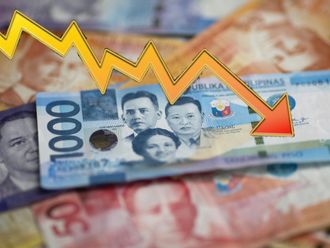When PPR changed its name to Kering, under an owl logo, it became “Kai Yun” in Chinese, meaning “open sky”, a synonym for good luck.
A distinctive identity and a winning offering for Chinese customers are more important than luck for the luxury companies owned by the French group. Chinese nationals bought a quarter of the world’s luxury goods by value in 2012, at home and abroad, according to estimates by Bain & Company for Alta-gamma, the Italian trade body.
But according to Chiang Jeongwen, marketing professor at Ceibs, the business school, the Chinese luxury market is at “a critical juncture”. Big brands, such as Kering’s Gucci and Louis Vuitton (owned by French rival LVMH) are finding it harder to balance desirability and accessibility, following rapid expansion into second- and third-tier Chinese cities.
“When you start to see every lady carrying a Gucci bag, you quickly lose the high-end customer,” he says. Government edicts against ostentatious gift-giving have also cast a shadow over some companies’ short-term sales.
The combination is testing Kering’s distinctive devolved management model, under chief executive and lead family shareholder Francois Henri Pinault — a model often contrasted with the more centralised approach of LVMH, headed by Bernard Arnault.
Excluding Japan, Asia-Pacific sales make up nearly a third of Kering’s annual revenues of €6.2 billion from luxury brands. The bulk are from China.
But the holding company has a tiny presence there: only 98 people work directly for Kering in Hong Kong and mainland China, while its 14 luxury brands employ more than 3,300.
The structure reflects the operating autonomy Kering offers its subsidiaries, which it calls “freedom within a framework”. But it is clearly in Pinault’s power to tighten the framework.
Alexis Babeau, who has run Kering’s luxury division since 2011, says: “We constantly ask ourselves, ‘Are there things we’re not doing for the brands that could be worth doing, or things [we are doing] where we’re destroying value?’”
Academics and executives at the Kering companies say the ability to draw on detailed data for all its brands in China, and to share best practice, is extremely valuable at a time of rapid change in Chinese customer attitudes.
Frederick Lukoff, CEO of Stella McCartney, half-owned by Kering, monitored trends in China sales at regular meetings of brand chief executives in 2009 and 2010. As they reported rising sales of leather goods and gifts, rather than women’s ready-to-wear clothes, he thought “the market has a lot of potential — but not for me”.
But in late 2011, Kering suggested the time was right. “I wouldn’t say they nudged [us], but . . . they encouraged [us],” Lukoff says, fresh from a trip to celebrate the opening of a new flagship store in Beijing.
Kering also offers direct practical support to its brands in China. Property experts scout for the best locations: the presence of Gucci’s flagship store in Shanghai’s Golden Eagle shopping mall helped secure a favourable location next door for sister company Bottega Veneta. Group media buyers support smaller brands, and its lawyers protect their intellectual property - vital in a market as prone to counterfeiting as China.
Indirect benefits are also important. Kering bought a majority of Qeelin, a small jewellery-maker that blends Chinese and European traditions, in December. Co-founder Guillaume Brochard says it had proved hard to attract Chinese staff, who preferred to work for bigger companies or start their own.
After the deal, inquiries rose 15-fold, “like night and day”.
Babeau explains that “it is the duty of the executive teams in our brands to come up with a strategy and it’s our duty to challenge that, to discuss it and to push them beyond their limits”. But strategic execution is left to the companies.
That is particularly important in China, because the market is evolving so rapidly. Patrizio di Marco, CEO of Gucci, recalls how the shift from logos to more subtle brand symbols took 10 to 15 years in Japan: “In China, it’s happening over three, four or five years.”
Comparing the decentralised decision-making with LVMH’s more top-down management style, Antoine Belge, an HSBC analyst, says Kering must strike a balance between “a consistent approach for the brand as a whole [and] the specificity of the local market”, especially as affluent Chinese start spending at least as much abroad as at home.
Kering can pull larger strategic levers if it wants to. The ability to move talented executives around the group is “a big asset,” says Stefania Saviolo of Milan’s SDA Bocconi management school. The holding company has identified 200 senior managers — including most of its Chinese country heads — who could move from brand to brand.
Lukoff’s predecessor at Stella McCartney, for instance, was Marco Bizzarri, who now runs Bottega Veneta; Bizzarri, in turn, succeeded di Marco when he moved from Bottega to Gucci in 2009.
Kering also keeps a close eye on the pace of expansion. Just as the group “encouraged” Stella McCartney into China in 2011, it spotted the opportunity for Bottega Veneta, prompting the high-end producer of leather goods to increase the number of mainland Chinese stores to 35, up from five in 2008. In 2004, Kering pushed Gucci’s then management to expand more aggressively to build a network of 57 stores across mainland China today.
Paradoxically, Gucci’s success in China may pose the biggest headache for Kering and di Marco. “Gucci and Louis Vuitton became too popular and [have been] abandoned by the rich Chinese,” says Sun Baohong, of Cheung Kong Graduate School of Business.
di Marco concedes he has had to “work harder in China because of a false perception that we are an ‘industrial company’”. To convert one wealthy Chinese customer of ready-to-wear clothing into a buyer of bespoke bags, for instance, Gucci invited her to Florence to meet its leatherworking artisans.
In China, meanwhile, Gucci and Kering have agreed that store expansion should now “normalise”, as older shops are refurbished. Gucci is “zoning” stores so fans of its famous GG logo see what they want, while customers for whom the logo is already too brash a fashion statement are catered for elsewhere in the same shop.
“The higher you go up the ladder, the more sophisticated you have to be,” says Di Marco.
He believes it is “inevitable” that “mega-brands” will succeed in China as the middle-class continues to grow, but as Babeau puts it: “It’s about managing exclusivity and growth.” It could be a good motto for all Kering’s luxury brands as they ride the next phase of China’s inexorable rise.
— Financial Times












